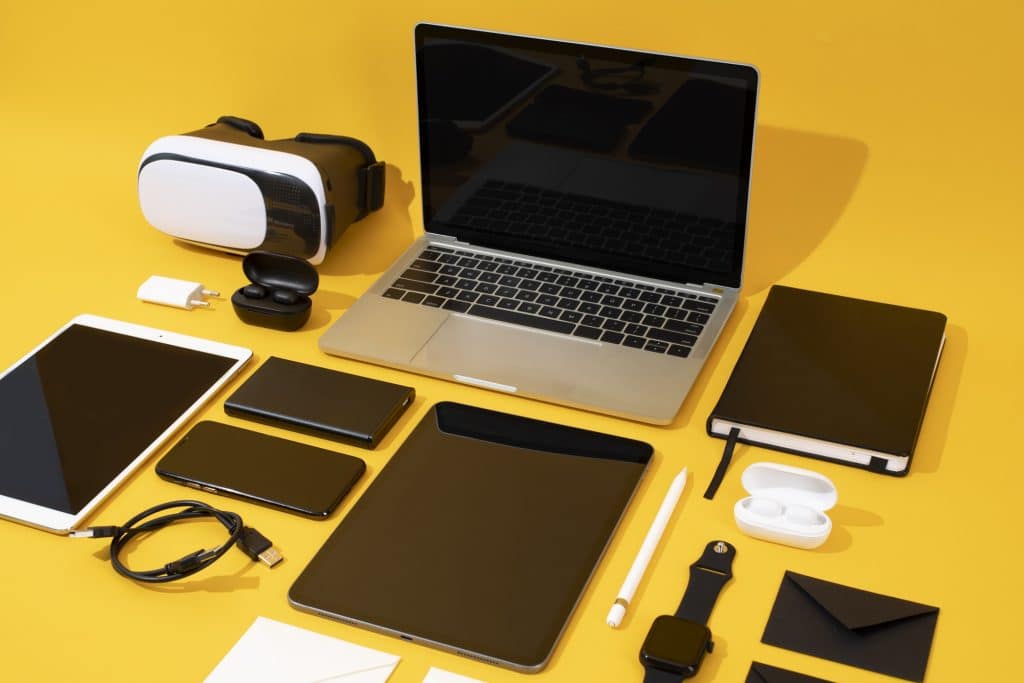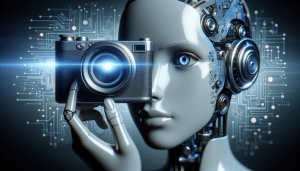Emerging Trends in Consumer Electronics
Oliver Cooper August 22, 2025
The consumer electronics market is evolving at a rapid pace, with new technologies changing the way we live, work, and play. By 2025, advancements in AI, sustainability, and connectivity will have transformed the devices we use every day. From smarter homes and wearables to foldable screens and eco-friendly innovations, the future of consumer electronics is exciting. In this article, we’ll explore the key trends shaping the industry and how they’ll impact our lives.

Why Consumer Electronics Are Changing So Fast
Several factors are driving the rapid evolution of consumer electronics. These include:
- Advances in artificial intelligence (AI): AI is enhancing the functionality and personalization of devices.
- Demand for connected devices: With the Internet of Things (IoT), consumers expect more devices to seamlessly communicate with each other.
- Sustainability: As awareness of environmental issues grows, consumers want eco-friendly electronics.
- Improved user experiences: Electronics companies are focused on making devices easier to use and more efficient.
Let’s dive into the key trends that will define consumer electronics in 2025.
1. Artificial Intelligence (AI) and Machine Learning
AI and machine learning are central to the evolution of consumer electronics. These technologies make devices smarter, more efficient, and better at meeting user needs. In 2025, we’ll see even more widespread use of AI in everyday devices, such as smartphones, wearables, and home assistants.
How AI Enhances Devices
- Smart assistants: Devices like Google Nest and Amazon Alexa are learning from user interactions, making them more responsive and personalized.
- Smartphones: AI-powered features, such as improved camera performance and smarter battery management, will enhance user experience.
- Wearables: Fitness trackers and health monitors will use AI to provide better insights into health data and lifestyle habits.
AI is making devices smarter and more intuitive. These innovations help improve efficiency and offer users a more personalized experience.
2. The Growth of Smart Homes and IoT
Smart homes are becoming more integrated into our daily lives. In 2025, we will see even more devices communicating seamlessly with one another. IoT is driving this trend, allowing for a connected home that responds to your needs.
Key Smart Home Features
- Voice control: With voice assistants like Siri, Alexa, and Google Assistant, you can control lights, thermostats, and locks just by speaking.
- Automated routines: Devices will learn your behavior and adjust settings automatically. For example, the thermostat will adjust based on your routine, and lights will dim at the right time.
- Integration: Devices like refrigerators, security cameras, and thermostats will work together, improving convenience and energy efficiency.
Smart homes offer more control, comfort, and energy savings, making life easier and more connected.
3. Sustainability and Eco-Friendly Electronics
Sustainability is a major focus in 2025. Consumers are looking for products that are not only efficient but also eco-friendly. As environmental concerns grow, manufacturers are responding with greener products that have a lower carbon footprint.
How Electronics Are Going Green
- Sustainable materials: Manufacturers are using recycled plastics, biodegradable components, and eco-friendly packaging in their products.
- Energy-efficient devices: Electronics are being designed to consume less energy, helping consumers lower their energy bills while reducing environmental impact.
- Recycling programs: Many companies offer recycling programs to help customers dispose of their old electronics responsibly.
Sustainability is now a key factor in the purchase decisions of consumers. As demand for green technology rises, the industry is evolving to meet this need.
4. Augmented Reality (AR) and Virtual Reality (VR)
AR and VR are transforming how we experience entertainment, education, and even work. In 2025, these immersive technologies will become more mainstream and widespread across different industries.
The Future of AR and VR
- Retail: AR is enhancing the shopping experience, allowing customers to try on clothes virtually or visualize furniture in their homes.
- Education: VR is revolutionizing learning by offering immersive experiences like virtual field trips or interactive science labs.
- Healthcare: VR is helping medical professionals with training and patient rehabilitation, while AR is improving surgical precision.
AR and VR are becoming more than just entertainment—they’re now being applied in many areas to improve experiences and outcomes.
5. Foldable and Flexible Displays
Foldable and flexible displays are one of the most exciting innovations in consumer electronics. These displays allow devices to be more versatile, offering larger screens while still maintaining portability.
The Future of Foldable Screens
- Foldable smartphones: Phones like the Samsung Galaxy Z Fold and Huawei Mate X have popularized foldable screens, allowing for larger displays without sacrificing portability.
- Flexible wearables: Smartwatches and other wearables are adopting flexible displays, offering a better user experience with more screen space.
- Foldable tablets and laptops: In 2025, we’ll see more flexible devices that can switch between phone, tablet, and laptop modes, making them more adaptable to various tasks.
Foldable screens bring greater functionality and flexibility, making devices more practical and efficient for everyday use.
6. 5G and the Future of Connectivity
The rollout of 5G networks is one of the most anticipated changes in consumer electronics. With faster speeds and lower latency, 5G will unlock new possibilities for devices and services in 2025.
How 5G Changes Consumer Electronics
- Faster internet speeds: 5G will make browsing, streaming, and downloading faster and more reliable, providing a better overall experience for consumers.
- Smart cities: 5G will improve the effectiveness of smart city technologies, like energy management and traffic control.
- Enhanced gaming and AR/VR: 5G will enable smoother, more responsive gaming and AR/VR experiences, making them more immersive and enjoyable.
As 5G networks expand, they will transform the way we use consumer electronics and interact with the digital world.
7. Health Tech and Wearables
Health tech is a rapidly growing sector. In 2025, wearables like smartwatches and fitness trackers will offer even more advanced features to monitor health and well-being.
Health Tech Innovations
- Advanced fitness tracking: Wearables will track more than just steps. Devices will monitor heart rate, sleep patterns, blood oxygen levels, and more to give users a complete picture of their health.
- Health diagnostics: Some wearables will be capable of monitoring conditions like diabetes or detecting irregular heartbeats, providing users with real-time health insights.
- Mental health: Many wearables now include features that help users manage stress and track their mental health, with guided breathing exercises and mindfulness reminders.
Health tech wearables will continue to evolve, offering more insights into our physical and mental health while encouraging healthier habits.
Conclusion: The Future of Consumer Electronics
The consumer electronics industry in 2025 is being shaped by AI, sustainability, AR/VR, and flexible displays. As devices become smarter, more energy-efficient, and more integrated into our daily lives, we can expect to see even more innovation in the years ahead. The future of consumer electronics is all about convenience, personalization, and sustainability. By adopting the latest technologies, consumers can enhance their daily experiences while contributing to a more connected and sustainable world.
As new trends continue to emerge, the possibilities for consumer electronics are limitless. From smarter homes and health-focused wearables to 5G connectivity and foldable screens, the future promises to be an exciting time for both consumers and the industry.
References
- Consumer Electronics Industry: Key Trends and Strategies to Succeed in 2025, https://www.pippit.ai/resource
- Trends 2025: Consumer Electronics & Wearables – AI, AR, Health Tech and More, https://ts2.tech/en
- Consumer tech innovations dominating 2025—And why they matter, https://www.hindustantimes.com







